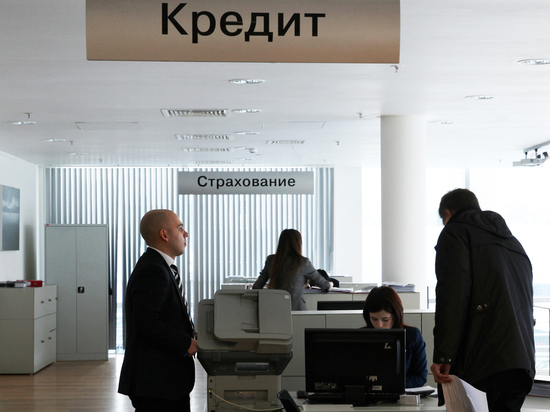Young and healthy men have become unwanted customers for banks
[ad_1]

The announcement of partial mobilization led to unexpected consequences in the credit market. Citizens who were previously considered the best borrowers – young, healthy and working men – at once turned into unwanted customers for banks. Credit institutions, fearing defaults on loaned funds, began to increase the risk ratios for loans for Russians of draft age.
The adoption of the law on credit holidays for the mobilized only strengthened this trend. Anatoly Aksakov, head of the State Duma committee on the financial market, has already said that discussions on possible compensation for losses for banks are ongoing. According to him, the Ministry of Finance estimated possible losses at 1-2% of net profit. How large is this amount in money and whether it will be possible to convince banks to be more loyal to men by guaranteeing them compensation, experts told MK.
As a result of the adoption of the law on credit holidays for the mobilized, the Russians called up to participate in the special operation have the opportunity to receive benefits on mortgage and consumer loans. They have the right to suspend payments on loans that were concluded before the day of mobilization and signing of the contract, or reduce them.
In other words, the benefit is due to men who took out loans before they were called up for military service. It also includes citizens who are dependent on them. The Central Bank of the Russian Federation reported on the eve that their close relatives would also have the opportunity to apply for restructuring of loans to the men called up to participate in the special operation.
Today, both the state and society show concern for the mobilized. But private business looks at what is happening from its bell tower.
As a result of the announcement of mobilization and subsequent legislative initiatives, men of military age, previously so desirable as clients, fell into the category of “refuseniks” at banks. According to experts, credit and financial organizations do not yet fully understand at whose expense the debts of those killed in hostilities or those who received the first group of disability will be written off. There are fears that this responsibility will fall on the credit institutions themselves and they are trying in advance to reduce possible losses. Banks have no official reason to think otherwise. Anatoly Aksakov said that the Ministry of Finance estimates the possible losses of banks at 1-2% of their profits, while discussions on possible compensation for losses continue.
According to Nikolai Vavilov, a specialist in the strategic research department at Total Research, credit institutions have begun to reinsure themselves. “In fact, this is nothing more than the greed of financial institutions,” the expert emphasized. – In our opinion, the forecast for losses from the Ministry of Finance, voiced by Aksakov, is too high. The banking sector will not experience any particular problems in terms of mobilization.
Losses can be no more than 1%. Only 300 thousand people are mobilizing, and the number of active clients – individuals in 2021, for example, only at the largest bank in our country is 103.8 million people. Let’s say that only half of them are men, then conditionally 52 million people remain. It turns out that the number of mobilized is 0.57% of the clients of this financial giant, and this is the maximum estimate, since it is clear that not all conscripts have loans, the expert estimates.
According to Vavilov, judging by the profit criterion of the banking sector as a whole, this year is likely to be unprofitable, but on the other hand, financial institutions made good money earlier, even during the pandemic and post-pandemic recovery. So, last year 2021 was a record year for them in this indicator, Russian banks increased their net profit to 2.363 trillion rubles. But in 2022, their expenses for business support and various government programs increased sharply, reserves for problem loans also increased, and state-owned banks lost part of their funds due to sanctions. According to the first deputy chairman of the Central Bank, Dmitry Tulin, in January-June, the banking sector’s losses reached 1.5 trillion rubles, the largest financial institutions took the brunt. But, according to him, so far the banks have managed “little blood”: they have a capital reserve of 7 trillion rubles.
As the candidate of economic sciences, financial analyst Mikhail Belyaev noted, it is easier for a bank to refuse a loan than to deal with losses later, reporting to the Central Bank. It is easy for deputies, sitting in an armchair, to make decisions demanded by society, but one must remember the final economic effect.
Of course, it is possible to offer to write off these loans by writing an instruction for banks to cancel the loans of those mobilized if they received the first group of disability, but in the final reporting it will still look like a loss. Banks also rely on a certain level of their financial stability.
Thinking through the compensation mechanism could generally reduce the desire of banks to enroll all men of military age in the category of “refuseniks”, making it almost impossible for them to get a loan. Ultimately, however, even this may not persuade banks to change their scoring models – the ones that authorize a loan to a client. Commercial organizations have the right to make their own decisions, focusing on their vision of the situation, the expert pointed out.
[ad_2]
Source link






